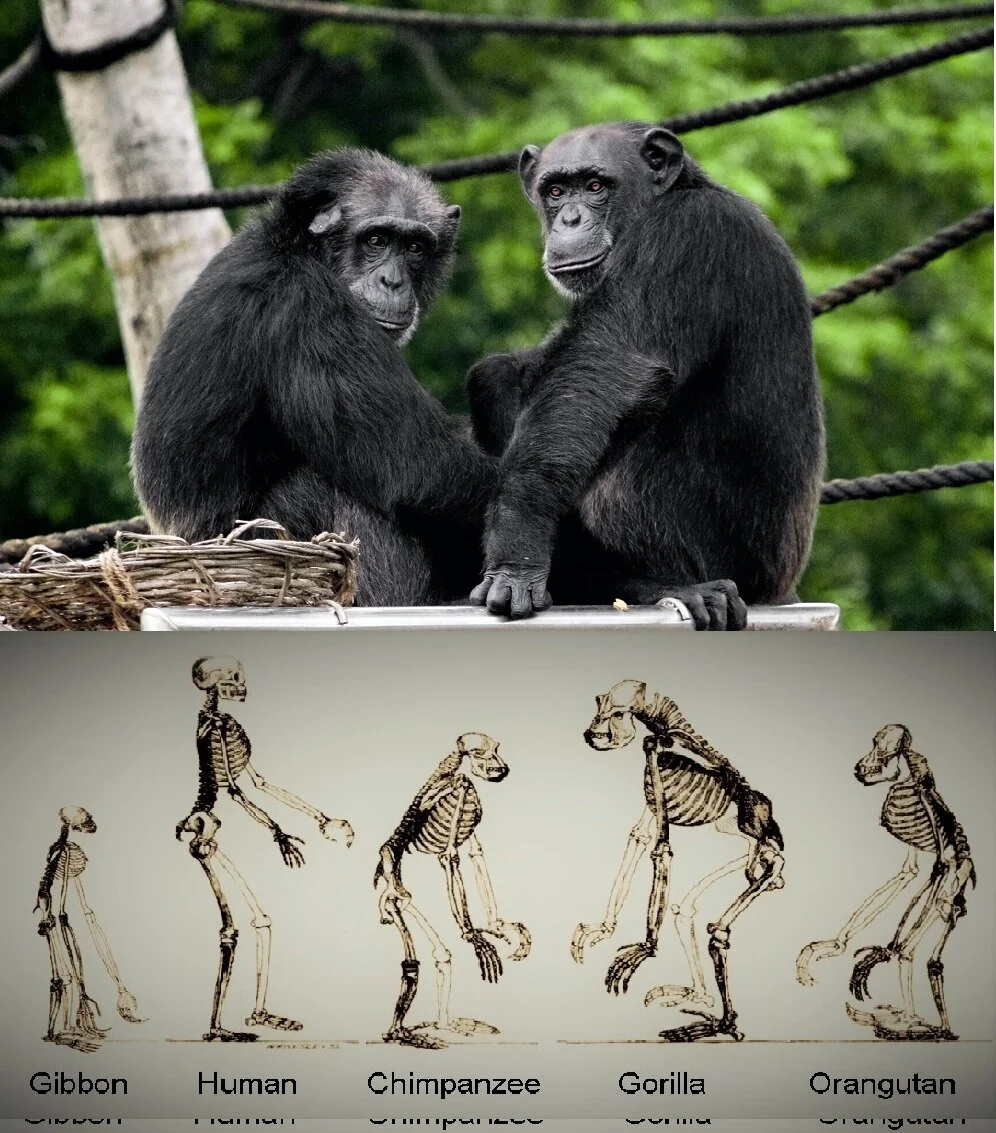How Ape Cousins Reveal Human History and Our Common Story of Evolution
/How Ape Cousins Reveal Human History and Our Common Story of Evolution
Looking at the numbers, there are approximately 7.67 billion people on the Earth today. In contrast, according to the World Wildlife Fund, the wild chimpanzee population is under 300,000, wild orangutans are fewer than 120,000, and although gorillas are notoriously hard to count, it is estimated there are some 100,000–200,000. Every great ape is endangered—except us.
The tragedy of those numbers is apparent to anyone who cares about conservation. We lose species to extinction every day, driven by economically motivated habitat destruction or unfettered consumerism. Wherever humans go, biodiversity often suffers, and we are everywhere.
Great apes are special because they are the closest remaining threads on that web of humanity, and we can never recover the information they have to share about our origins once they are lost. Apes are uniquely impactful to the field of anthropology, where we researchers look to the past to understand our present. If the desire to preserve biodiversity isn’t enough to save the apes, then unlocking the human story should be a further impetus for their conservation.

























